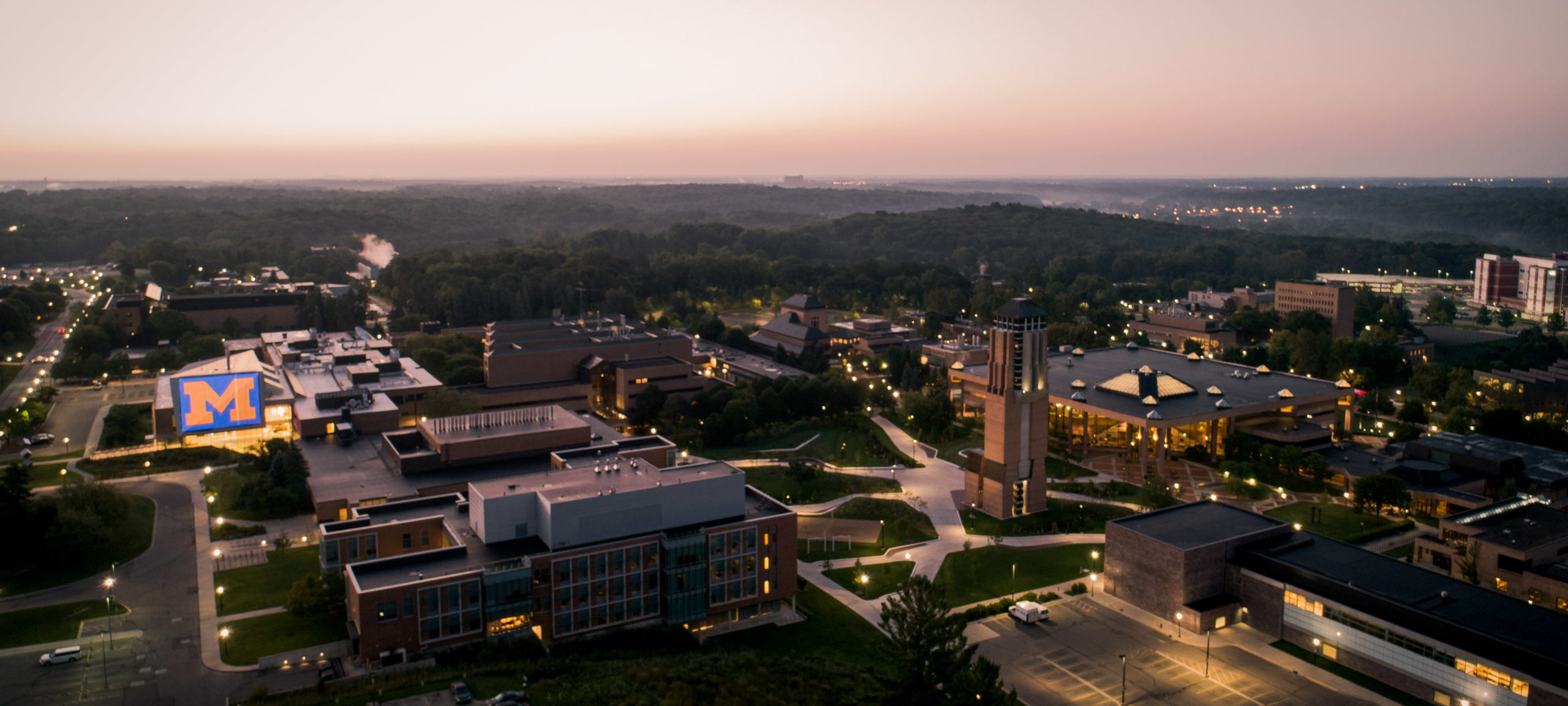New online education program brings high-demand topics in technology to the world
Continuum offers courses in machine learning, linear algebra, and coding for everyone from high schoolers to engineers already established in their careers.

 Enlarge
EnlargeNorth campus, University of Michigan. Photo: Levi Hutmacher/Michigan Engineering

The Continuum program, launched in Fall 2020, offers continuing online education taught by faculty in Electrical and Computer Engineering (ECE) at the University of Michigan. Courses range from introductory classes designed for high school students to specialized classes for those already established in their careers to keep up-to-date on the latest in machine learning.
“This program is about making education more accessible for everyone,” said Mingyan Liu, the Peter and Evelyn Fuss Chair of ECE. “Our goal is to advance inclusive teaching by reaching more students without sacrificing quality.”
Continuum courses are rigorously designed to give participants knowledge that will serve to jumpstart their learning and serve as a bridge to more advanced courses. Students must apply to the program, for each course requires some pre-requisite technical or mathematical background. The courses aren’t eligible for academic credit, but learners get a completion certificate for coding the weekly assignments.
Currently, Continuum offers three courses:
- Computational Machine Learning for Scientists and Engineers is designed to equip established engineers with the knowledge to understand, train, and design machine learning algorithms, particularly deep neural networks, and to deploy them on the cloud.
- Applied Computational Linear Algebra for Everyone is open to everyone and aims to link the math of linear algebra to code with a few “must know” applications centered around different ways of casting and fitting a system of equations.
- The Joy of Coding is an introductory course targeted toward high school students who want to step into the wondrous world of coding.
Continuum was created by Prof. Raj Nadakuditi, who currently teaches all three courses. He uses Pathbird, a cloud-based interactive textbook platform he developed with Computer Science & Engineering alum and Continuum support lead, Travis DePrato. Pathbird enables instructors to build their materials into video game-like journeys that unfold as the learner progresses, creating a more interactive experience for the students.
“I absolutely loved taking this class,” said Claudio Simon (PhD EE:S 1998), who took Computational Machine Learning for Scientists and Engineers. “It was, first, a lot of fun to go back to college and learn a lot about the new tools and platforms that are used nowadays in academics, like Piazza, as an example. Also, Professor Raj provided a great foundation on A.I. and also along the way showed us how A.I. has been used in multiple areas in different fields and industries, as well as sharing some very insightful thoughts about the ethics aspects that we will need to consider when applying A.I.”
Simon is currently the Product Development Project Management for Ultrasound NPI Portfolio at Philips Healthcare. Part of what drew him to the course was the potential to explore the role of A.I. in his own profession.
“Over the last three months, I became even more enthusiastic about the potential applications of A.I. in my own field and industry, and I’m now accelerating exploring that, and how we can leverage that at work,” Simon said.
Continuum boasts a completion rate of nearly 90%, whereas most online courses have a completion percentage of only 10%. Participants were highly engaged, as reflected in their testimonials. The learners who didn’t complete the course praised the content and deferred to a subsequent term when they would have more time. The Joy of Coding will be offered for the first time this summer.
“We created The Joy of Coding, because we realized that many high school students wanted to, and were ready to, learn to code but many didn’t know where to start,” said Nadakuditi. “We welcome anyone and everyone who has a desire to learn, including first-generation coders and students from rural communities and homeschoolers.”
Nadakuditi plans to grow the program, adding classes that build on the existing courses and allow students to learn more and experience the Michigan Difference from afar. In the near-future, he hopes to see Continuum serving thousands of individuals of all ages per year.
 MENU
MENU 
